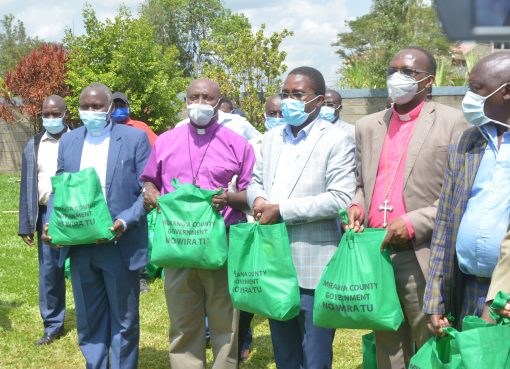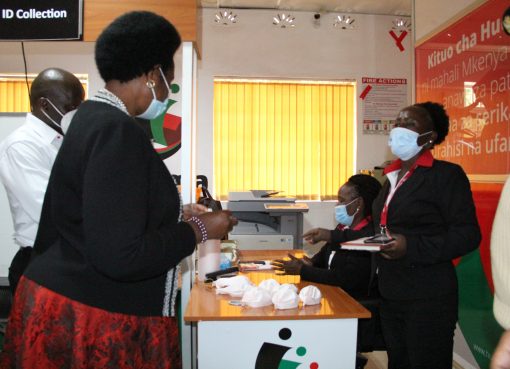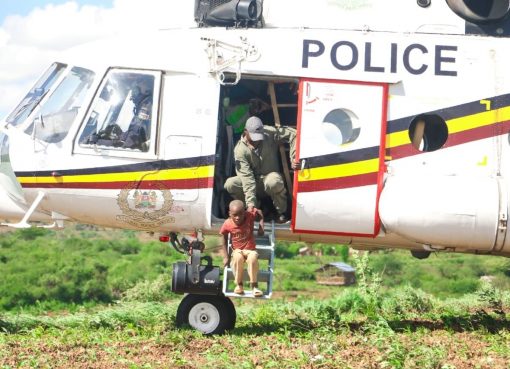Police in Narok County are investigating an incident where a man is alleged to have committed suicide in Mau forest by hanging himself using a rope as the Mau evictions phase two were coming to an end.
The Narok County Police Commander, Aden Yunis said the deceased, James Ole-Kanyim, who hails from Katama Village, Narok South Sub-county in the Maasai Mau area, was believed to have been a land broker and had sold land to over 10 individuals in the Maasai Mau forest.
The incident occurred Friday night, soon after the government announced that all illegal settlers had moved out of the Maasai Mau forest and Environment and Forestry Cabinet Secretary, Keriako Tobiko, led a major tree planting exercise the same day to restore the forest where over 300, 000 seedling were planted manually and 4.5million seeds broadcasted from the air with the help of a helicopter. The family is now preparing for the burial of the deceased.
The widow, Vivian Kimange, said that prior to the government announcement was made regarding the Mau evictions, she had been living with her husband happily.
“After the evictions’ 60-day notice which ended last month, my husband fell into heavy drinking habit due to frustrations of having sold land to other people who were back and likely to be on his neck, demanding their money,” she said.
Her sentiments were echoed by area residents who described the deceased as a jovial man but attributed his death to alcoholism and fear of the wrath of individuals to whom he had sold land in Maasai Mau and had now moved out.
The body of the deceased is lying at the Narok Referral Hospital mortuary pending postmortem and further investigation to the incident as the family prepares for the burial.
After the eviction notice was issued, the government urged all settlers in Maasai Mau who had titles or allotment letters to the parcels of land they owned in the Mau to surrender them and to give information on who sold them land so that due process of the law may take its cause, terming the land documents illegal.
Following the order, over 11 title deeds and 77 sales agreement were confirmed to have already been surrendered by evictees and others were urged to surrender their titles as they were not legal.
So far, following the first phase of eviction that ended in September 2018 and the second phase of the Mau evictions that came to an end last week, 100 percent of the families previously living in Maasai Mau have moved out, with 35, 000 acres of land having been recovered.
The second phase of the evictions whose notice ended last week affected Nkoben, Ilmotiok and Ololung`a areas where over 3, 300 families living in the forest moved out peacefully and voluntarily. Other areas affected included Enokishomi, Enoosokon, Nkaroni and Sisia areas.
During the first phase of the eviction in July last year, about 7, 700 people were ejected from the forest land which saw over 12, 000 acres of the forest reclaimed. It was centered in Reiya Group Ranch.
The eviction attracted political undertones with leaders from the Maa and Kalenjin communities in bitter exchange of words. The Mau is the largest water tower in the country supporting millions of human life and wildlife in Kenya and beyond.
By Mabel Keya-Shikuku/Kevin Bogita




